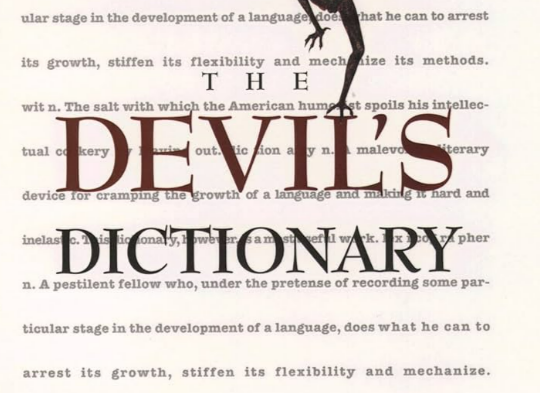Chapter M
byChapter M opens with Bierce’s sardonic interpretation of Mace, not as an ornamental staff of office, but as a relic of violence disguised in symbolism. Once wielded to physically crush opposition, it now merely represents authority—yet the threat it implies has not vanished. Bierce suggests that all symbols of power retain traces of their brutal origins, no matter how ceremonial they appear today. This observation invites reflection on how civilization dresses violence in the robes of civility. The evolution of tools into symbols reveals how society hides force beneath decorum.
In Machination, Bierce takes aim at cunning schemes devised not for innovation, but to unravel the progress of others. He points out how seemingly brilliant strategies are often cloaked in ethics but motivated by envy or ambition. Here, cleverness becomes corruption, and politics is revealed as theater where intentions are rarely as noble as they seem. Bierce’s wordplay subtly condemns the ease with which intelligence can be bent toward sabotage. His definition turns suspicion into satire, exposing the insecurity at the heart of competition.
With Macrobian, Bierce humorously explores the cult of longevity. He notes how those who live long are admired not for wisdom, but for their ability to endure—even as relevance fades. His jab at elderly politicians, who outlive their usefulness yet cling to power, serves as a critique of institutions that favor duration over adaptability. He challenges the idea that age alone qualifies one for authority. For Bierce, survival does not equal merit; it may simply reflect society’s reluctance to let go.
When he arrives at Mad, Bierce uses wit to undermine the societal standards of sanity. To him, madness is often just independence misinterpreted by the crowd. Those labeled insane may be the few still thinking freely, while conformity passes for reason. His inversion of logic highlights how groupthink becomes the benchmark of sanity, and deviation, however insightful, becomes pathology. This definition questions how societies define normalcy and suggests the truly mad may be those who never question the rules.
Malefactor receives a flip in meaning as well. Rather than simply “a criminal,” Bierce defines it as someone caught doing what others would do if they thought they could get away with it. The term becomes a mirror, reflecting the hypocrisy in moral judgment. Crime, in his view, is not always about wrongdoing—but about failure to conceal it. In redefining the word, Bierce critiques a justice system built more on perception than principle.
In Magic, he takes aim at superstition cloaked in mystique. Magic, he says, is simply the art of appearing to do the impossible—whether through trickery, illusion, or persuasion. Bierce mocks how belief in magic often survives logic, offering comfort or distraction rather than truth. His tone implies that what passes for magic in modern times might just be manipulation dressed in awe. It’s not just the wand or the ritual—it’s the audience’s willingness to believe.
Money receives one of Bierce’s most brutal and accurate dissections. While society worships it, he argues, money holds no real value unless it’s being spent or surrendered. It is admired when hoarded and resented when used. This paradox—that money is powerful only when it changes hands—highlights the absurdity of greed. In critiquing currency, Bierce uncovers how wealth distorts human behavior more than it solves real problems.
Throughout this section, Bierce continues his linguistic autopsy of human folly. Martyr, for example, becomes a figure of misplaced devotion—someone who suffers not only for belief, but sometimes for spectacle. He challenges whether martyrdom is always noble or if it can become performance. Similarly, Marriage is recast not as a sacred union, but as a contract entered in haste and regretted in silence. Bierce dares to question the most cherished human institutions, reducing them to pacts of expectation and disillusionment.
Each definition builds on the last, forming a lattice of contradiction, wit, and insight. Bierce’s genius lies not only in how he defines, but in how he exposes. He invites readers to laugh, but also to doubt. Underneath the humor lies a deeper call—to reexamine the terms we live by, and to question the systems and stories that shape them. Through “M,” Bierce turns vocabulary into vision, showing that every word hides a world, and every world is worth dismantling.

